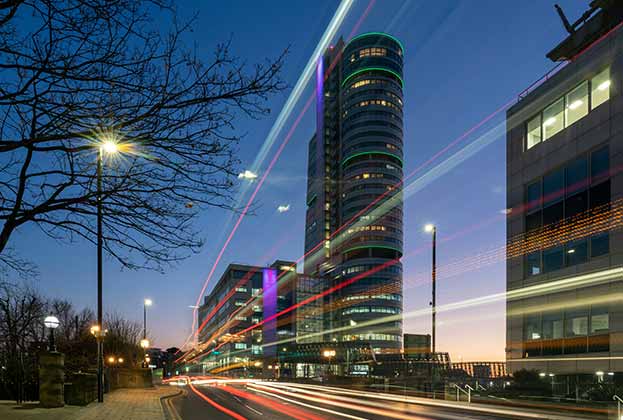The evolution of the flexible office sector has been further accelerated by the structural change we have seen in workspace demand from occupiers across the board as they seek to include a greater flexibility within their portfolios. The challenge for businesses to navigate the integration of hybrid working practices, and the implications this is having on determining space requirements, against a background of rising operating costs, has shone a spotlight on the benefits of flexible offices.
Birmingham has been no exception to this trend and, with the serviced office market accounting for 19 per cent of its total office take-up over the last five years, representing the largest proportion of take-up in the city during this time and the highest of the UK’s ‘Big 6’ cities. So what is it about Birmingham that lends itself so well to this sector?
One of the key drivers has been a general lack of high quality space in the sub-5,000 sq ft bracket, which has provided an opportunity for flex operators, and indeed landlords, to provide a solution on flexible terms. This appeals both to corporate occupiers looking to take a portion of flex space and smaller SMEs and startup companies. It’s important to note this isn’t simply about providing high quality smaller floorplates: occupiers looking for this type of space also want to feel part of the community which is typically offered by serviced and co-working spaces, while also having access to ‘big building amenities’ and being in modern buildings with strong sustainability criteria.
We have seen flexible office providers do this well including the likes of X&Why, Cubo and Spacemade which have recently all established new centres in Birmingham. We have also seen traditional landlords providing flexible office space themselves directly within larger buildings. CEG’s Alpha in Birmingham was one of the first office buildings to offer a contemporary co-working environment where occupiers can grow their businesses. New office buildings are recognising this demand and, as a result, many of the city's best in class buildings including 10 Brindleyplace, 103 Colmore Row, and Two Chamberlain Square all now offer an element of serviced offices.
The growth in flexible space across Birmingham has played an important role in the city attracting and retaining occupiers. A powerful case study is Goldman Sachs which took flex space at both WeWork’s 55 Colmore Row centre and Cubo at Centenary Square as an interim hub to operate and recruit from while preparing for its longer term new 110,000 sq ft conventional office at 1 Centenary Way.
Landlords have recognised the benefits of incorporating a flex function in their building in order to diversify the offer and provide additional facilities. Consequently, we have seen a significant growth in management agreements. By facilitating a means for landlords to be more actively involved, a successful flex operation can also often return a higher net overall rent to the landlord than a conventional letting and be a more diverse income stream. Furthermore, as the service offering demanded from occupiers increases, flex providers are well placed to curate and deliver these services with a customer service, hospitality-focussed approach to staffing and operating building reception services.
Recently named the fourth best city in the UK for scale-ups based on the number of active high growth companies in the market, Birmingham is rapidly establishing itself as one of the most exciting hubs for growing companies outside of London, for both smaller businesses and larger occupiers wanting a base outside of the capital. Against this background there is a substantial opportunity for the flex sector to expand further in the city, providing a complementary solution to the conventional market.
Further information
Contact Ben Thacker
Sector: Office and Business Space

-impact-the-office-sector(1).jpg)

.jpg)






